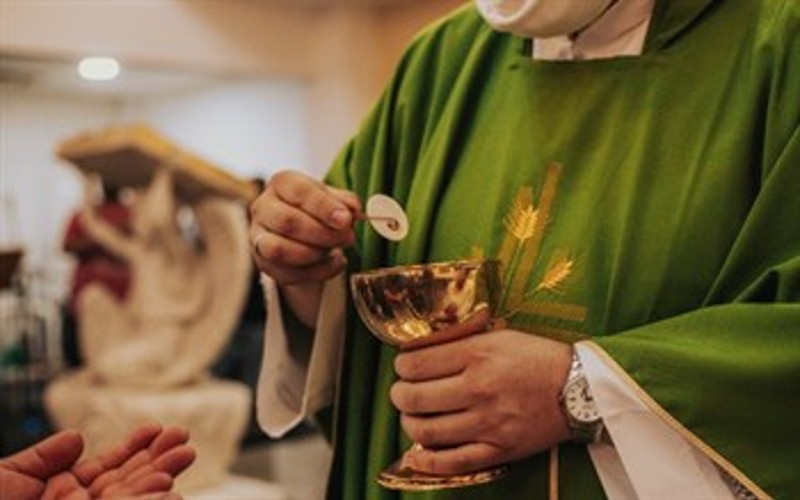The perception of Evangelicals as a powerful voting group is off the mark, new data reveals. Many don’t practice what they preach, and others of those who do aren’t all fired up about putting their faith into action – that's according to a study released by the Cultural Research Center at Arizona Christian University.
Polls showed that Evangelicals – to the tune of 80% - helped Donald Trump secure the White House in 2016. They solidly backed him with 80% again in 2020.
Those numbers, perhaps, help fuel a certain glow around the political influence of Evangelicals.
“What happens these days is this term of ‘Christian Evangelicals’ is used to build fear in the minds and hearts of the voting public. How? Because journalists will tell people, ‘Well, you know these Evangelicals, they’re Christian Nationalists. They don’t want a democracy; they want a theocracy,” George Barna, director of research and co-founder of the CRC at Arizona Christian, said on Washington Watch Thursday.
The numbers paint a different picture. In previous surveys, Evangelicals were estimated at 25-40% of the voting population, upwards of 100 million people.
But Barna’s group reshaped the definition of "evangelical" – and holding that designation to a different standard, the CRC survey found the number to be closer to 10% of the voting population and closer to 25 million people.
Not very interested in voting
As a group, Barna lamented, that diminished figure isn’t going to the polls en masse.
“What we find is 10% actually meet the theological criteria for what makes someone an Evangelical. That’s closer to maybe 25 million people. That’s nothing to sneeze at. That’s an important group, a potentially influential group – but it’s not what we’re led to believe,” Barna told show host Jody Hice.
More than one-third of Evangelicals are unlikely to vote this fall, the survey found.
Trump appeared to distance himself from Evangelicals through a softening of language around abortion and traditional marriage in this summer’s revised Republican platform could combine with this new data to alter perception.
Among the missing elements in 2024 compared to 2016, the previous platform update, were support for the First Amendment Defense Act and for the Ten Commandments in schools.
Part of the glow around Evangelicals may have come from playing free and loose with the definition previously, Barna said.

“A lot of that comes from research that relies on people calling themselves Evangelicals. Our research tends to not take people at face value with those types of labels. What we do is figure out what the definition is, then ask people components of the definition and put it together to see how many fit it,” he said.
That approach led to a lower estimate of overall numbers. Within those fewer numbers were findings that Barna argues should alarm genuine Evangelicals.
“Many of the people who even qualify as theological evangelicals don’t really buy the Bible at face value. Many of their beliefs are not consistent; now many are, I’m not saying it’s a lost cause or [that] they’re bad people, but there’s a lot of misinformation in the minds and hearts of people who even when you define them theologically as Evangelicals,” Barna said.
For starters, he continued, many Evangelicals don’t daily practice the Bible’s teachings. Theological Evangelicals are dialed into the Bible from a big-picture perspective but struggle with some of the details. That makes them susceptible to slick advertising and catch campaign slogans, Barna said.
“They’ll believe in the biblical notion of God. They’ll believe that God is the basis of truth and that the purpose of life is to know, love and serve God with all their heart, mind, strength and soul. They believe the universe was created by God, the reality of Jesus Christ, that He lived on earth, and they believe that Satan exists.”
But when conversation drifts from those kinds of “Sunday School 101” concepts, things get murky, Barna said.
Devil in details, but Evangelicals aren’t
The nature of moral truth and its application, a Christian’s call to share the gospel … the level of commitment starts to change with these. “These are things that don’t get talked about as much in our churches,” Barna said.
These values are the very heart of conflict between Theological Evangelicals – by definition – and many social platforms with the Democratic Party.
“These are the kinds of issues that equate not only to our lives but also to the political issues of the day when we look at issues such as abortion, transgenderism and so forth. That’s where Evangelicals really struggle to make the connection between biblical truth [and questions like] Who am I in America? and What’s my influence supposed to be here if I’m trying to honor Christ and advance his kingdom?” Barna said.
Perhaps there’s a connection between that truth uncertainty and a willingness to engage.
The study looked at roughly 80 different segments of the population and found that Theological Evangelicals ranked near the bottom in terms of people likely to enter discussions with others who believe differently on political and social issues.
“That’s a far cry from what we always hear about Evangelicals, that they’re going to be in your face quoting scripture and talking about what the Bible teaches. Our data is showing that things have changed in the last 40 years. That’s not what Theological Evangelicals are like anymore if they were that way previously,” Barna said.
Most avoid activism even in private
Many Evangelicals remain reluctant to apply their faith in a somewhat controversial manner even in quiet, the survey found.
“Even simple things that people may not know about you doing, things like boycotting products or services that support a progressive ideology, most Evangelicals aren’t willing to do that,” Barna said.







